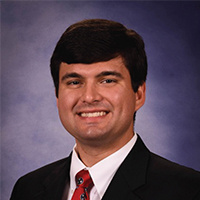Lenoir City White Collar Crime Lawyer, Tennessee
Sponsored Law Firm
-
 x
x

Click For More Info:
-
The Law Offices of Richard L. Cooper, P.A.
848 Brickell Avenue Suite 800 Miami, FL 33131» view mapDWI/DUI, Drug Trafficking, Felony Nationally Ranked Top 40 Under 40
With Richard L. Cooper you can expect a trusted confidant who will work diligently to fully understand your case and determine a road map to help you regain control of your life.
800-756-2781
Not enough matches for Lenoir City White Collar Crime lawyer.
Below are all Lenoir City Criminal lawyers.
L. Eric Ebbert
✓ VERIFIEDL. ERIC EBBERT is the owner of the Ebbert Law Firm, which he created in 2020. He is licensed in both Tennessee and Florida. He practices in the areas ... (more)
Matthew Janson McClanahan
✓ VERIFIEDMatthew is a proud native-born Tennessean and the third generation to live on my family’s farm. His roots trace back to his ancestor and the first g... (more)

 Richard L. Cooper Miami, FL
Richard L. Cooper Miami, FL AboutMiami Attorney at Law
AboutMiami Attorney at Law ServicesCriminal Defense
ServicesCriminal Defense


